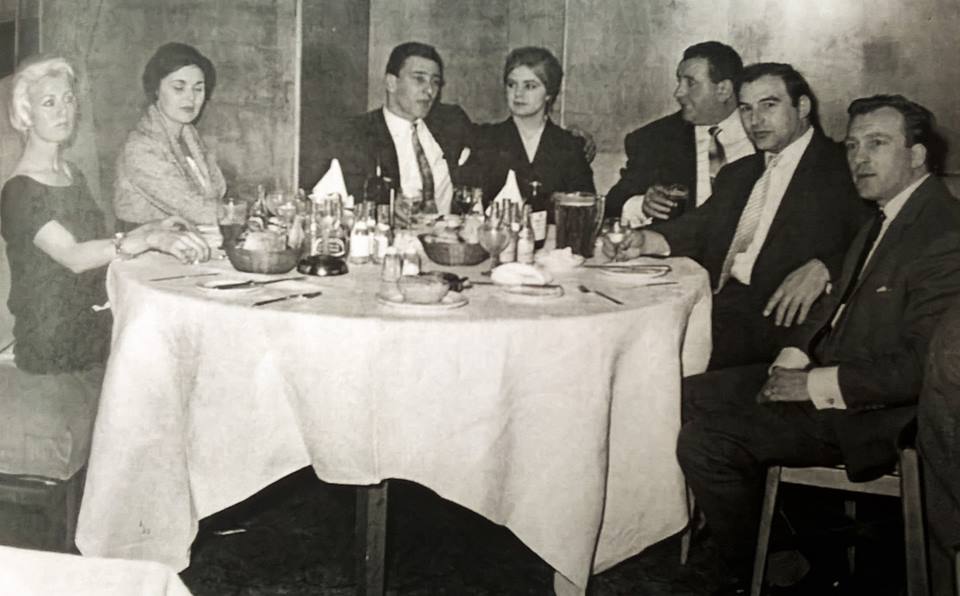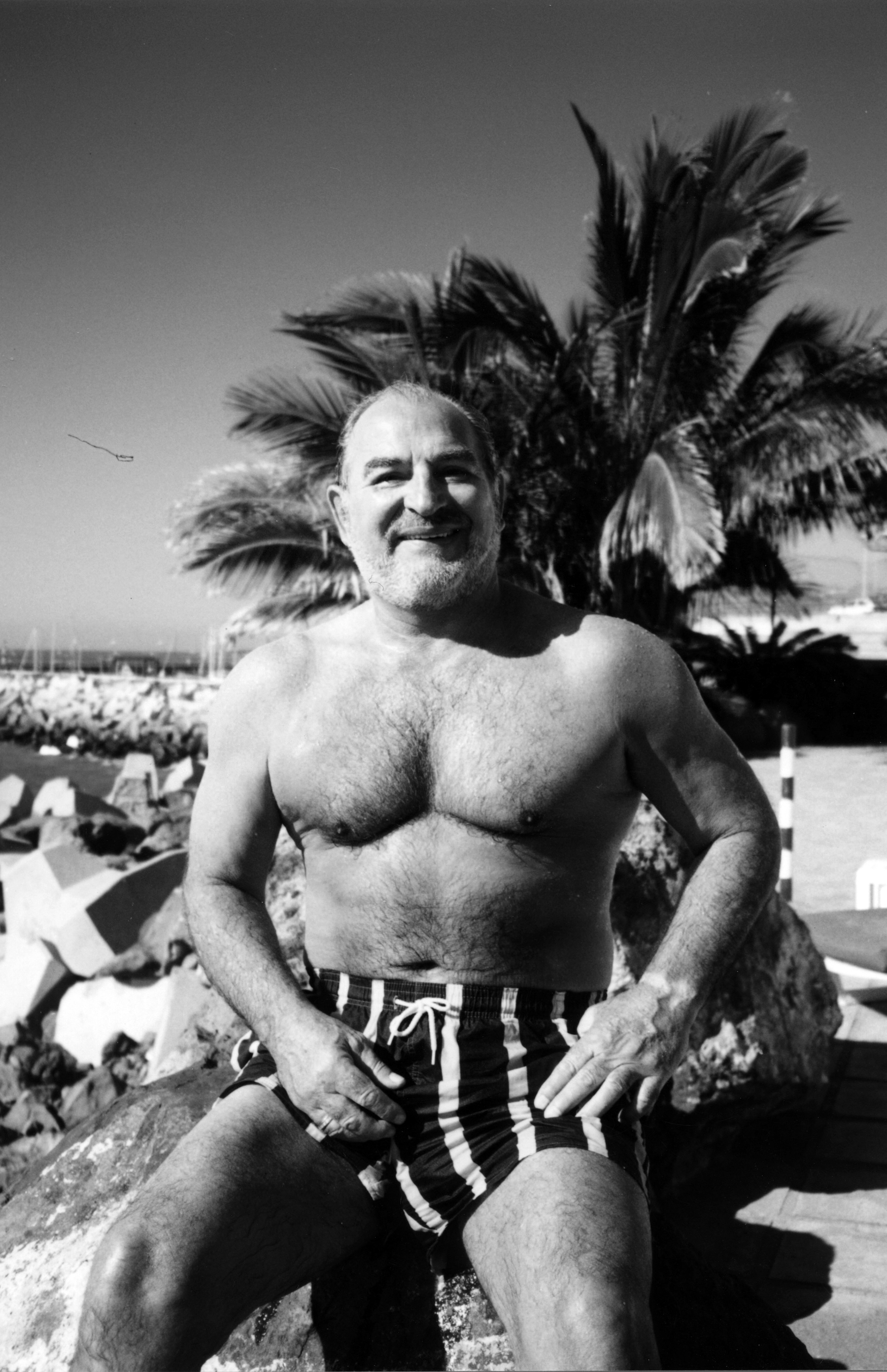A fascination with the old-school British gangster doesn’t seem to be going anywhere. Sharply-dressed 1960s men who love their mothers as much as they love stabbing, shooting and terrorising people are often, bizarrely, held up as representing some romantic vision of the London of old.
One of the few remaining major figures from that period, Freddie Foreman, is the subject of a new feature length documentary, Fred, by director Paul Van Carter. Foreman spent ten years in jail after disposing of the body of Jack “The Hat” McVitie after Reggie Kray killed him and dumped him on Foreman’s doorstep. He spent another nine years in prison for the Shoreditch Security Express robbery of 1983, which at the time was the largest ever cash robbery in the UK. He has also confessed to two murders, but the allegations against him stack much, much higher than his actual convictions. Now 86, Freddie lives in a nursing home with no money, estranged from his family.
Videos by VICE
After the film’s world premiere at CPH:DOX in Copenhagen, I spoke to Van Carter about the time he spent with one of London’s last remaining old-guard gangsters.

VICE: Hi Paul. How did you meet Freddie and come to make a film about him?
Paul Van Carter: In 2017 we had a premiere of a film I produced, called My Name Is Lenny, and Freddie showed up at the premiere. He came over with his godsons and said, “I’d love you to do for me what you did for [boxer] Lenny McLean.” I was a little bit cautious about my company [Salon] becoming known for making gangster movies, but I met him for lunch.
What were your first impressions?
I saw something under the surface. The first thing he said to me was, “I don’t have any regrets,” and I thought, ‘Well, that’s interesting, because if I’d killed people and done bank jobs and my wife had left me and I’d done 20 years in prison, I would have regrets.’
Why are people so fascinated with these characters, and are we running the risk of glorifying them by continuing to make films about them?
There’s a mystique – an exoticism, almost. Especially for someone that’s not from London or who is middle class or American. I think people have a strange fascination when it comes to meeting a killer, especially at a safe distance, when you’re not in the criminal world. I didn’t form a huge opinion on him from those first meetings, but having read his book, I knew he was a killer, and I knew that I didn’t want to glorify him; someone who was a potential hitman, and – if the rumours were to be believed – then almost a serial killer.

What was your approach to interviewing him?
I thought there would be two ways that this could unfold: the first was that I would crack him right open and he’d confess everything and I’d portray him as a monster; the other route would be him closing up and not confessing anything, but from what I knew about him I could then reveal this slightly sad story about how his life has ended up.
What I was seeing was this quite tragic grandpa figure; I wanted to get inside that story. So it became less important for me to ask the questions that might lead to confessions, and more important to ask about these events and what he has done, how they have affected him emotionally and psychologically, and the trauma and lasting affect. I wanted to ask if he’d ever thought about confronting those feelings. I mean, doing that sort of shit is going to affect you, even just doing it once by accident. If someone has a tragedy and hits someone with their car, that’s going to stay with you forever, let alone going out and shooting one or two or 30 people. That was what was interesting to me: what was going on in his head.
He obviously couldn’t speak about a lot of things anyway, because it’s suggested that he’s responsible for a lot more than he was convicted of.
There are lots of allegations that, in the 1960s, he didn’t just dispose of Jack The Hat’s body, but that he was a professional undertaker – [that] he got rid of bodies professionally. There are also allegations that when he was living in Spain he wasn’t straight, he was doing a lot of hits, as many as 30 or 40.
In the film he seems to try to switch off his emotions when asked about them. Do you think he’s done that internally his whole life as a means to deal with what he’s done?
Yeah. What we do know is that he cut up Jack The Hat’s body and dumped it at sea, so let’s take that as an example. I think that’s been boxed up, which is a common psychoanalytical tool of dealing with trauma – you package things up. I think he’s done that unconsciously; I think he’s boxed all these things up and put them in the attic, and he’s never really had a peek inside. But I think, if that’s buried, then there are subconscious things coming through at night or when he’s asleep. He said he’s had nightmares since 1939 – that’s a long time to have nightmares for. I think he knows there’s something not right, but when he’s sitting home alone at night, I don’t think he’s the sort of guy that goes, ‘Fucking hell, I killed that geezer and it was horrible.’ As he says in the film, it’s more like, ‘Get it out of your mind, Fred, put that away.’ I think the chat we had was the closest he’s ever got to unboxing that stuff.
There’s a recurring line in the film where he says, “There’s no greater crime than putting your family through poverty.” Obviously there is – murdering people being one of those things – but do you think that is something he’s just repeated to himself to such a degree that he believes it in order to justify what he’s done?
It was one of the first things he said, along with, “It was only business, I was doing it to provide for my family.” To a certain extent he was right, because I don’t think he ever went out and maliciously attacked or killed anyone for an unprovoked reason – I think everything was calculated and he did everything for money.
Was money his main motivation?
He’s not into material things. He’s never had sports cars, he’s never been obsessed by that. He spent money on housing and private education for his kids. So whether there’s an addiction to the thrill of thieving and villainy, or the power, I don’t know. At one point he went to America and had a great life and was straight for two years. He then got the call, much like Ray Winstone in Sexy Beast, of, “We’ve got this job, £6 million,” which is about £30 million these days, and he was literally straight on the plane. I don’t think there is any one thing that he was particularly motivated by, be it money, malice, power or the thrill of it, but I think he used that umbrella excuse of doing it for his family.

Did he take pride in his work and being good at it?
For sure. I think he’s established a little playbook for himself too, never stealing from old ladies, never mugged anyone or robbed anyone’s house. Only proper jobs that would hold up a truck or a bank or a safe deposit, so for him there was a certain set of rules. I think he told himself what he did was OK because he wasn’t a home-invader or something – a feeling that he’d done things the right way. He’s certainly proud of that, because he feels he can hold his head up.
Do you buy that? That seems delusional to think he’s lived a life of victimless crime, because he’s no doubt torn apart generations of families as a result of what he’s done.
His defence is that he’s killed hit men and violent criminals – dangerous men. That he’s never touched a woman or a child, and never picked on a straight person or a police officer. For him, he’s only killed or beaten up bad men or robbed banks or institutions – people that can afford it. I think, in his mind, the calculation is that it’s not victimless, but it’s innocent victimless.
What interests you most about this world of gangsters you’ve explored?
I wouldn’t say I’m a particular fan of gangsters or the gangster world, or even gangster films. I haven’t actively pursued that genre of filmmaking; it’s just by chance that my first film turned out to be a crime film, Shank. That led onto Bronson, so I got a familiarity with meeting people like Joey Pyle [gangster] and an understanding of how to behave around those people and which ones to avoid. There are certain figures from that world who are stand-up guys, and there are others that aren’t.
With Fred, what’s interesting to me about him is if you cut up a human body, you cut the hands off and you pull the teeth out and you cut someone’s fucking head off, and you go home and you wash your hands, what happens next? What happens when you wake up? What happens 20 or 60 years later in your head? That was what interested me, not the gangster stuff. If some complete plastic gangster came and said, “I want you to make a movie about me,” then I’d run a mile, because I’m not interested in idiots like that. There’s a lot of muppets in that world.
Thanks, Paul.
More
From VICE
-

Photo Credit: Joe'y -

Screenshot: Sandfall -

Alanis Morissette au Montreux Jazz Festival le 19 juillet 2025. (Photo by Lionel FLUSIN/Gamma-Rapho via Getty Images)

